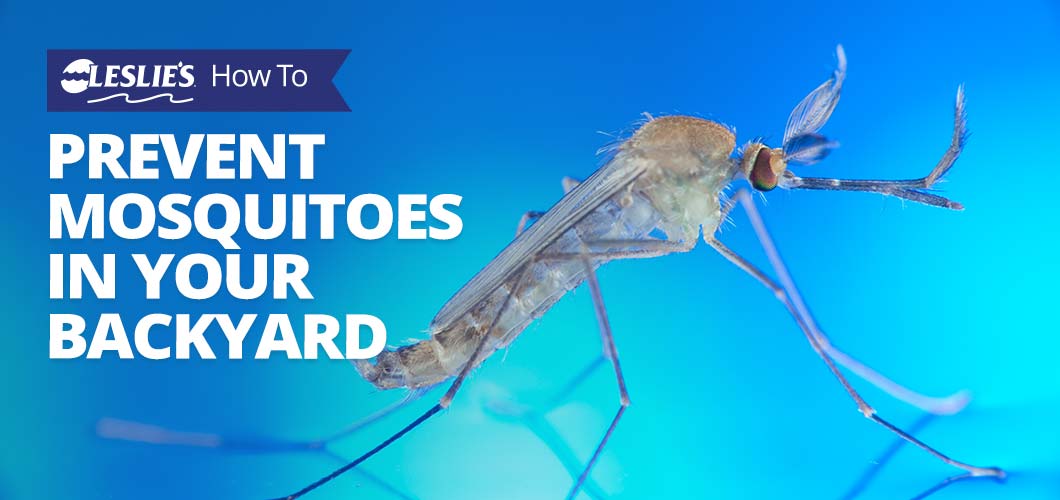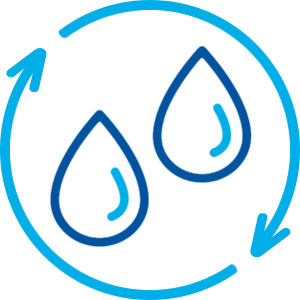
How to Prevent Mosquitoes in Your Backyard
It’s safe to say nobody likes mosquitoes. They buzz in your ears, tickle your skin, and leave a red, itchy welt behind whenever they bite. They can also spread all kinds of diseases, including West Nile, Zika, Malaria, and Yellow Fever. You may wonder how you can protect yourself and your family against these flying pests. Let’s look at a few ways to get rid of mosquitoes in your own backyard.
DID YOU KNOW? According to data from the Centers for Disease Control and Prevention, there were 2,695 cases of the West Nile Virus reported for 2021. This number exceeds the previous year’s grand total of 664 cases. Of the reported cases, there were 191 deaths caused by West Nile Virus in 2021.
Interrupt Their Life Cycle

Prevention is key in preventing mosquitoes from swarming your piece of paradise. Step one in getting rid of mosquitoes is to interrupt their life cycle. Mosquitoes rely on shallow, stagnant water to reproduce. Once hatched, their larvae need access to microorganisms and organic materials to grow. If you take these things away, mosquitoes can’t continue increasing in number.
Start by identifying sources of standing water. These might include open containers, concave surfaces, bird baths, clogged gutters, flower pots, old tires, water features, ponds, or low spots in the yard. Once you’ve identified the problem areas, it’s time to take action. You can disrupt their life cycle in several ways. For example, you can add fountains or fish to a pond. Or you might choose to simply empty areas of standing water. It doesn’t take much — an entire population of mosquito larvae can thrive in as little as one ounce of standing water. Make sure to cover all your bases!
A Note For Pool and Spa Owners:

If you own a pool or spa, you can do your part to prevent mosquitoes simply by maintaining it as you normally would. Prevent stagnant water by running your pool’s circulation and filtration system for the right amount of time each day. Proper water balance and sanitizer levels remove microorganisms and organic contaminants from the water, which mosquito larvae require for survival and development. In short, a clean and healthy pool is not conducive to mosquito reproduction.
Even if your pool or spa is clean and clear, there are a few things to keep in mind. If you use a solid safety cover or a solar cover on your pool, make sure to remove any water on top of the cover at least once every day or two. Also remove unused toys and floats from the pool, as some can hold small pools of water on their surface.
BONUS TIP: To keep your pool healthy, it’s important to regularly test the water. In addition to your weekly at-home tests, bring a water sample to your local Leslie’s store at least once a month for a FREE AccuBlue® professional water analysis.
Keep Them at a Distance
Mosquitoes are most active at dawn and dusk, but can strike at any time of day. When you’re out in the yard or lounging by the pool, use mosquito repellents to keep them at a distance. Citronella candles and torches are a popular choice because of their pleasant aroma and visual appeal. Fans and misters will also help deter them from an area. For an added layer of protection, apply mosquito repellent spray to your skin.
Stop Them in Their Tracks
When your neighborhood’s mosquito population grows out of control, you may need to take more drastic measures to eliminate them from your yard. Mosquito sprays, foggers, traps, and zappers are all effective ways to kill adult mosquitoes.
But when it all comes down to it, the best way to prevent mosquito issues in the first place is to maintain a healthy, well-balanced pool. For tips and tricks on how to maintain safely sanitized pool water, stop by your local Leslie's. While you're there, bring a pool water sample to take advantage of our free in-store AccuBlue® pool water test and treatment plan.